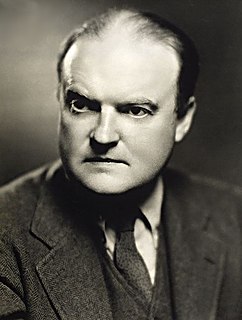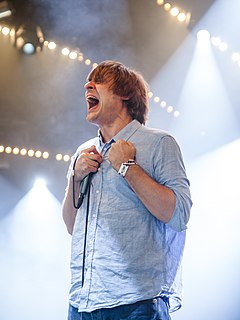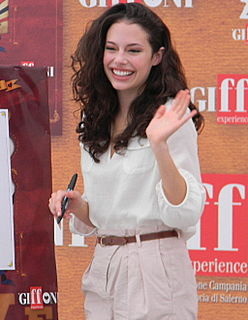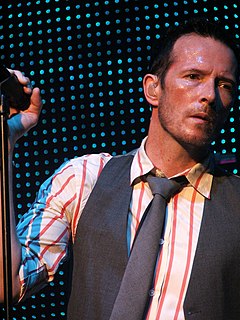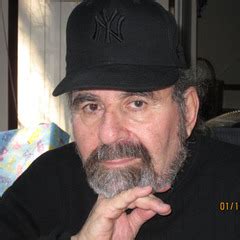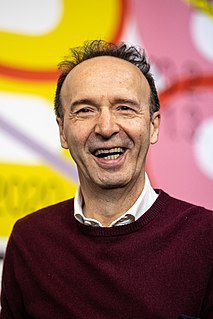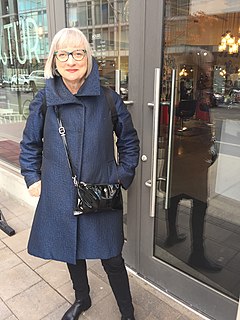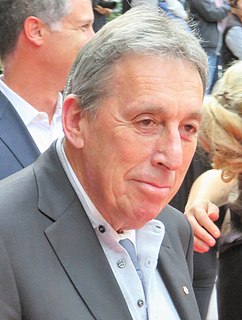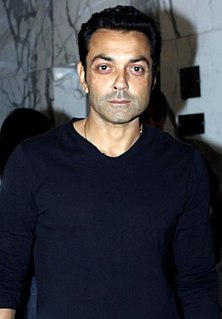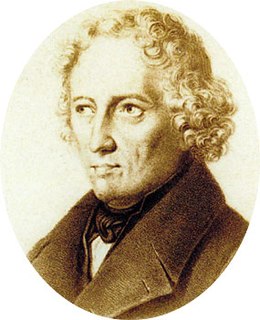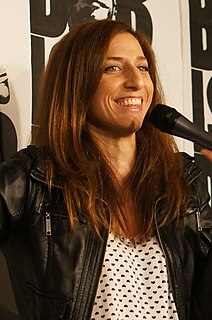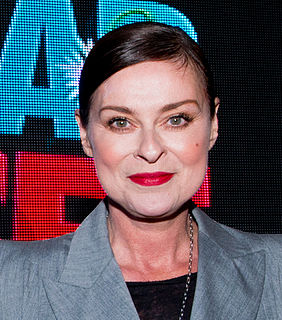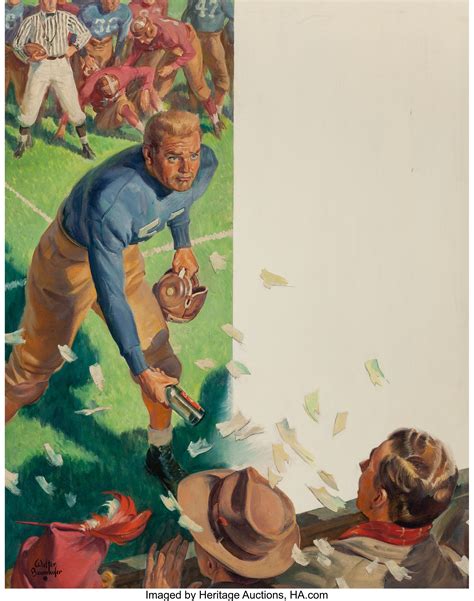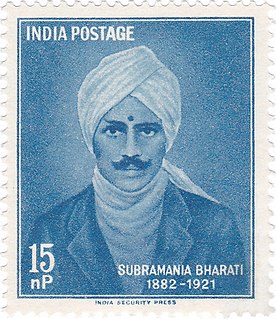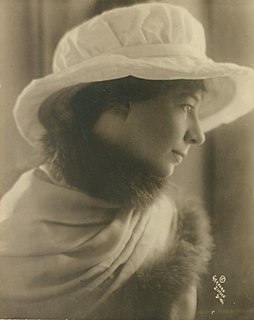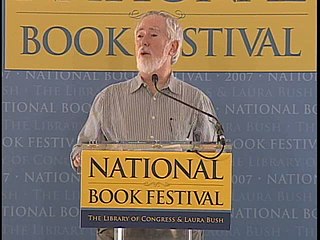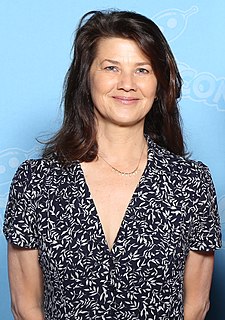Top 1200 Romantic Poet Quotes & Sayings - Page 7
Explore popular Romantic Poet quotes.
Last updated on October 8, 2024.
She was a lovely lady, with a romantic mind and such a sweet mocking mouth. Her romantic mind was like the tiny boxes, one within the other, that come from the puzzling East, however many you discover there is always one more; and her sweet mocking mouth had one kiss on it that Wendy could never get, though there it was, perfectly conspicuous in the right-hand corner.
A young poet in America should not be advised at the outset to give up all for the Muse-to seclude himself in the country, to live hand from mouth in Greenwich Village or to escape to the Riviera. I should not advise him even to become a magazine editor or work in a publisher's office. The poet would do better to study a profession, to become a banker or a public official or even to go in for the movies.
It has been observed before that images, however beautiful, though faithfully copied from nature, and as accurately represented in words, do not of themselves characterize the poet. They become proofs of original genius only as far as they are modified by a predominant passion; or by associated thoughts or images awakened by that passion; or when they have the effect of reducing multitude to unity, or succession to an instant; or lastly, when a human and intellectual life is transferred to them from the poet's spirit.
There's love and there's romantic love. The Greeks had different words for different kinds of love. And we just got "love." I don't know what you would call the other kinds - maybe brotherly love, Christian love, the love of Saint Francis, love of everyone and everything. Then there's romantic love, which, by and large, is a pain in the ass, a kind of trauma.
It is one thing to write as poet and another to write as a historian: the poet can recount or sing about things not as they were, but as they should have been, and the historian must write about them not as they should have been, but as they were, without adding or subtracting anything from the truth.
People think you have this exciting and romantic life, because you project this exciting, romantic life on screen. But in reality you're just doing the same thing as everyone else - you know, sitting around watching TV with your gut hanging out, playing with your kid, or even sitting on the toilet. You know what's weird? Even I'm not that interested in my personal life any more.
I see love, like art, as an obsession. Maybe that's an overly romantic view of human existence, but I'm an overly romantic human being. If love, like rock and roll, doesn't consume me 24-7, it's not love. It can be respect, appreciation, admiration, wonderment, it can be a world of glory and a lifetime of peace, but I can't call it love. Love burns me and confuses me. Love's a light that can't be extinguished.
The poet's, the writer's, duty is to write about these things. It is his privilege to help man endure by lifting his heart, by reminding him of the courage and honor and hope and pride and compassion and pity and sacrifice which have been the glory of his past. The poet's voice need not merely be the record of man, it can be one of the props, the pillars to help him endure and prevail.
Two opposing forces inhabit the poem: one of elevation or up-rooting, which pulls the word from the language: the other of gravity, which makes it return. The poem is an original and unique creation, but it is also reading and recitation: participation. The poet creates it; the people, by recitation, re-create it. Poet and reader are two moments of a single reality.
I began writing for kids because I wanted to effect a change in American society. I continue in that spirit. By the time we reach adulthood, we are closed and set in our attitudes. The chances of a poet reaching us are very slim. But I can open a child's imagination, develop his appetite for poetry, and more importantly, show him that poetry is a natural part of everyday life. We all need someone to point out that the emperor is wearing no clothes. That's the poet's job.
A poet is an unhappy creature whose heart is tortured by deepest suffering but whose lips are so formed that when his sighs and cries stream out over them, their sound beomes like the sound of beautiful music . . . . And men flock about the poet saying, Sing for us soon again; that is to say, may new sufferings torture your soul, and may your lips continue to be formed as before.
The romantic view of the natural world as a blissful Eden is only held by people who have no actual experience of nature. People who live in nature are not romantic about it at all. They may hold spiritual beliefs about the world around them, they may have a sense of the unity of nature or the aliveness of all things, but they still kill the animals and uproot the plants in order to eat, to live. If they don't, they will die.
What is a poet? An unhappy man who hides deep anguish in his heart, but whose lips are so formed that when the sigh and cry pass through them, it sounds like lovely music.... And people flock around the poet and say: 'Sing again soon' - that is, 'May new sufferings torment your soul but your lips be fashioned as before, for the cry would only frighten us, but the music, that is blissful.
Genius in the poet, like the nomad of Arabia, ever a wanderer, still ever makes a home where the well or the palm-tree invites it to pitch the tent. Perpetually passing out of himself and his own positive circumstantial condition of being into other hearts and into other conditions, the poet obtains his knowledge of human life by transporting his own life into the lives of others.
I like doing comedy, I like doing drama. Naturally I like to do, I like doing dramas, I like conflict, and when I do a comedy, you know, I've found that, like, romantic comedy is the trickiest one, because often it's neither: it's not romantic and it's not funny. So, like, I like a comedy that's biting. It's biting humor or really quirky humor.
I haven't seen any poet in this country behave nearly as rudely as Newt Gingrich or Bill O'Reilly. I'm not asking these people to approve of everyone's manners. I don't feel obliged to defend the manners of every poet who submits a poem to my web site. That's not my job. My job is to provide them with an opportunity to speak from the heart. If there's not much in the heart and if the mouth is running wild, that's not my problem.
I think the whole emphasis in England, in universities, on practical criticism (but not that so much as on historical criticism, knowing what period a line comes from) this is almost paralysing. In America, in University, we read - what? - T. S. Eliot, Dylan Thomas, Yeats, that is where we began. Shakespeare flaunted in the background. I'm not sure I agree with this, but I think that' for the young poet, the writing poet, it is not quite so frightening to go to university in America as it is in England, for these reasons.
There is nothing dictators hate so much as that unassailable, eternally elusive, eternally provoking gleam. One of the main reasons why the very gallant Russian poet Gumilev was put to death by Lenin's ruffians thirty odd years ago was that during the whole ordeal, in the prosecutor's dim office, in the torture house, in the winding corridors that led to the truck, in the truck that took him to the place of execution, and at that place itself, full of the shuffling feet of the clumsy and gloomy shooting squad, the poet kept smiling.
Dante Alighieri was not only a Christian poet or a priest, he was a man. He was a real poet. We can understand that the goal of Divine Comedy is beauty. You don't need also to understand Italian or to know Italian, because when Dante's writing, when we recite Dante out loud, it explodes a cosmos of illumination like to recite music, a symphony.
Harriet Levin [is] a shining poet in her generation.... The dynamics of her language and her vigorous voice distinguish all her poems. Levin's fearless willingness to tackle any subject combines with her subtle intelligence to produce a rare reading experience, the moving, psychologically sophisticated and intriguing work of a poet with both guts and craft
Once a poet always a poet, and even though I haven't written poems for a long time, I can nonetheless say that everything I've ever learned about writing lyrical fiction has been informed by three decades of writing in lines and stanzas. For me the real drama of fiction is almost always the drama of the language.
It seemed like so much of romantic relationships today have to do when the people are not in the same room. Whether it's texting or emailing or Facebooking, there's a kind of distance between the participants. I think it's sort of shifted the energy of that first romantic meeting, where it's quicker, perhaps more desperate, more energetic, in a whole different way, and it's resulted in a situation where people seem to be sometimes more comfortable having a sexual relationship than an emotional one.
G-Dragonhe is very romantic. I’m his roommate so I see everything. He’s seriously romantic. If he dates someone he makes a song for them. One time he asked me how the song was. And I said oh my god if this was released in Korea there’d be a huge deal and it would make so much money. But… since it’s for the woman he loves it’s only for her and gives up that money/fame from that song.
Book love is something like romantic love. When we are reading a really great book, burdens feel lighter, cares seem smaller, and commonplaces are suddenly delightful. You become your best optimistic self. Like romantic love, book love fills you with a certain warmth and completeness. The world holds promise.
Our consumer economy peddles the notions "romantic consumerism" of finding "the one," of being the one. It's the narcissistic enhancement of, "I'm the one you stopped your nomadic life for." It's one thing when you have sex for the first time when you marry, but it's another thing altogether when you stop having sex with others when you marry. So the marital commitment becomes, "I must be really special. With me, you no longer think you can find better next door." Romantic consumerism is thinking you can't find better, younger or newer.
In romantic comedies there's a certain ceiling and a floor that you can't necessarily love as hard, or hate as hard, or have as much pain, because you sink the shop of the romantic comedy. But in a certain drama, like some of the ones I've been doing, the ceiling and the floor was my own. And in many ways, that was a higher ceiling and a lower floor, so that was more of a band-with for those emotions.
Jacob wrote that the true poet 'is like a man who is happy anywhere, in endless measure, if he is allowed to look at leaves and grass, to see the sun rise and set. The false poet travels abroad in strange countries and hopes to be uplifted by the mountains of Switzerland, the sky and sea of Italy. He comes to them and is dissatisfied. He is not as happy as the man who stays at home and sees the apple trees flower in spring, and hears the small birds singing among the branches
So, then, the best of the historian is subject to the poet; for whatsoever action or faction, whatsoever counsel, policy, or war-stratagem the historian is bound to recite, that may the poet, if he list, with his imitation make his own, beautifying it both for further teaching and more delighting, as it pleaseth him; having all, from Dante’s Heaven to his Hell, under the authority of his pen.
The poet is born with the capacity of arranging words in such a way that something of the quality of the graces and inspirations he has received can make itself felt to other human beings in the white spaces, so to speak, between the lines of his verse. This is a great and precious gift; but if the poet remains content with his gift, if he persists in worshipping the beauty in art and nature without going on to make himself capable, through selflessness, of apprehending Beauty as it is in the divine Ground, then he is only an idolater.
The poet must not only write the poem but must scrutinize the world intensely, or anyway that part of the world he or she has taken for subject. If the poem is thin, it is likely so not because the poet does not know enough words, but because he or she has not stood long enough among the flowers--has not seen them in any fresh, exciting, and valid way.
I do feel like guys feel pressure to be funny with me, which is kind of annoying. It's a turn-off if someone's trying hard to be funny because it feels like they're auditioning for a comedy job or something. It doesn't feel romantic to me. I get so much comedy from my life that, from a guy, I'm more looking for something sweet or romantic.
The fact that I'm a woman is as important to my work as a poet as the fact that Ahmad Sh?mlu was a man was important to his work as a poet. Basically, gender shouldn't be viewed as an advantage in art. If a poem or a piece of writing is good, what difference does it make whether it's by a woman or a man? And, if it's bad, why should its writer's gender make it good?
In your language you have a form of poetry called the sonnet…There are fourteen lines, I believe, all in iambic pentameter. That’s a very strict rhythm or meter…And each line has to end with a rigid pattern. And if the poet does not do it exactly this way, it is not a sonnet…But within this strict form the poet has complete freedom to say whatever he wants…You’re given the form, but you have to write the sonnet yourself. What you say is completely up to you.
While the poet entertains he continues to search for eternal truths, for the essence of being. In his own fashion he tries to solve the riddle of time and change, to find an answer to suffering, to reveal love in the very abyss of cruelty and injustice. Strange as these words may sound I often play with the idea that when all the social theories collapse and wars and revolutions leave humanity in utter gloom, the poet--whom Plato banned from his Republic--may rise up to save us all.
I have a romantic comedy I'd love to make, but I can't get the money for it. It's hard to get people to give you money for an arty romantic comedy when you've done a horror movie. So I can just sit there and keep complaining about that, or I can go make another horror movie this year. People will get behind me on that, because I'm relatively bankable. As long as I can do my own thing with it, I'll keep doing it.
As a poet and writer, I deeply love and I deeply hate words. I love the infinite evidence and change and requirements and possibilities of language; every human use of words that is joyful, or honest or new, because experience is new... But as a Black poet and writer, I hate words that cancel my name and my history and the freedom of my future: I hate the words that condemn and refuse the language of my people in America.
The very idea of a bird is a symbol and a suggestion to the poet. A bird seems to be at the top of the scale, so vehement and intense his life. . . . The beautiful vagabonds, endowed with every grace, masters of all climes, and knowing no bounds - how many human aspirations are realised in their free, holiday-lives - and how many suggestions to the poet in their flight and song!
When a poet writes a poem, meaning arises - because the poet is not alone; he has created something. When a dancer dances, meaning arises. When a mother gives birth to a child, meaning arises. Left alone, cut off from everything else, isolated like an island, you are meaningless. Joined together you are meaningful. The bigger the whole, the bigger is the meaning.
If you would get money as a writer or lecturer, you must be popular, which is to go down perpendicularly.... You are paid for being something less than a man. The state does not commonly reward a genius any more wisely. Even the poet laureate would rather not have to celebrate the accidents of royalty. He must be bribed with a pipe of wine; and perhaps another poet is called away from his muse to gauge that very pipe.
A poet’s freedom lies precisely in the impossibility of worldly success. It is the freedom of one who knows he will never be anything but a failure in the world’s estimation, and may do as he pleases. The poet is a man on the sidelines of life, sidelined for life. He belongs to the aristocracy of the outcast, the lowest of the low, below the salt of the earth. A member of the most ancient regime in the world. One that cannot, it seems, be overthrown.
Some people are still very romantic! I mean, those funny vampire films are super romantic, and I don't think that's bad. It means there are a lot of people who still believe in love in a weird way. Okay, it's a cheesy way, and I guess if you think about it, you're like, "Wait, you can love them as long as they're dead?" Maybe that's the point. Maybe it's more twisted than I thought. You can love but you can't age.
My theory is that poems are written because of a state of emotional irritation. It may be present for some time before the poet is conscious of what is tormenting him. The emotional irritation springs, probably, from subconscious combinations of partly forgotten thoughts and feelings. Coming together, like electrical currents in a thunder storm, they produce a poem. ... the poem is written to free the poet from an emotional burden.
It is necessary for us to explain the involuntary repugnance we possess for the nature and personality of the Jews. The Jews have never produced a true poet. Heinrich Heine reached the point where he duped himself into a poet, and was rewarded by his versified lies being set to music by our own composers. He was the conscience of Judaism, just as Judaism is the evil conscience of our modern civilization.
The workplace needs the poet's gift. But the poet also needs to be educated about the workplace. You're not just coming in to do your art, you're actually making yourself vulnerable. You yourself are not God's gift to truth. You have to hazard yourself in their world, especially because you're inviting people to do the same. It's all about become visible, becoming incarnate, becoming here and now and yet with our eyes on a future horizon; holding the conversation you were meant to hold.
He was already looking at their relationship through the lens of the past tense. It puzzled her, the ability of romantic love to mutate, how quickly a loved one could become a stranger. Where did the love go? Perhaps real love was familial, somehow, linked to blood, since love for children did not die as romantic love did.
I certainly was surprised to be named Poet Laureate of this far-out city on the left side of the world, and I gratefully accept, for as I told the Mayor, "How could I refuse?" I'd rather be Poet Laureate of San Francisco than anywhere because this city has always been a poetic center, a frontier for free poetic life, with perhaps more poets and more poetry readers than any city in the world.
The one that I really call love is when I feel like everything's okay. That state of, it's all right here. I spent most of my adult life looking for romantic love. I've been in therapy since '87. What I learned was, that connection that I was looking for that I thought was really romantic love, my therapist literally said, "Well, when you feel that next, you probably shouldn't go towards that for a partner."
Westerns. A period gone by, the pioneer, the loner operating by himself, without benefit of society. It usually has something to do with some sort of vengeance; he takes care of the vengeance himself, doesn't call the police. Like Robin Hood. It's the last masculine frontier. Romantic myth. I guess, though it's hard to think about anything romantic today. In a Western you can think, Jesus, there was a time when man was alone, on horseback, out there where man hasn't spoiled the land yet.

